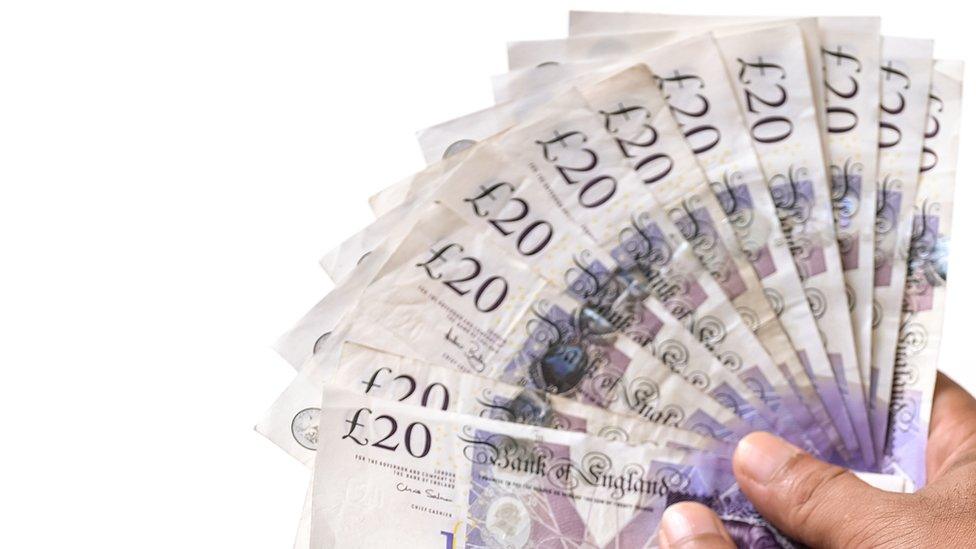Defined benefit pension transfer values 'shooting up'
- Published

Most workers are allowed to sell their defined benefit pensions for cash
Six million people with defined benefit pensions have seen their transfer values shoot up in the last year, according to a major insurance company.
Under the rules of most defined benefit schemes, workers have the right to swap their pension entitlement for money.
According to the insurer Royal London, the cash that such people can get has soared over the last 12 months.
It says some are being offered "eye-watering" sums, often tens of thousands of pounds more than a year ago.
For someone with a pension income worth £20,000, it is not uncommon to be offered 30 times that amount - in other words, £600,000 in cash.
But while selling the rights to a defined benefit (DB) pension may be useful for many people, Royal London is also warning that there can be significant disadvantages.
'Pressure off'
After working for 30 years for a credit card company, Paul Osborne, from Southend, Essex, was made redundant.
He found it hard to get another job and found himself living on benefits.
As a result, he was advised to sell his DB pension.
In 2014, he was offered a cash sum of £505,000 for it. A year later, that amount had jumped by 12%, to £567,000, an amount he accepted.
He then reinvested the sum in a drawdown pension, which currently pays him £25,000 a year.
"It has taken so much pressure off my shoulders, and I am a lot more happy," he told the BBC.
"It has given me my life back; I can't recommend it enough."

What is a defined benefit pension?

Workers with defined benefit pensions know exactly how much they will receive in retirement.
Such schemes are either based on a worker's final salary, or on their career average earnings.
Workers with defined contribution (DC) schemes save into a pension pot, which they then use to buy a retirement income. The size of the pot depends on stock market performance.

The reason for the increase in transfer values is continuing low interest rates.
Because of the methodology used by actuaries, that leads to a higher valuation of such pensions.
Royal London says selling DB pensions can offer:
A more flexible retirement income
The possibility of extra tax-free cash
Easier inheritance, as transferred funds can be passed on to heirs
'All or nothing'
But it also warns that keeping a DB pension is sensible for many people, as they offer:
Certainty. Such pensions pay an income for life
Inflation protection
Risk-free income, which does not depend on the ups and downs of the stock market
However, current rules mean that those selling their DB pensions have to sell the whole lot.
Steve Webb, a former pensions minister who is now director of policy at Royal London, believes workers should be able to sell any proportion they wish - a new right to "slice and dice" their company pension.
He said the option of taking a large lump sum was "a bit all or nothing".
"You either take the whole lot out or leave it where it is," he told the BBC.
"What I'm saying is there should be a middle ground where you can go on having some of your salary-related pension, so you have got this guaranteed income, but then you have got some cash you can invest or do something more flexible with."